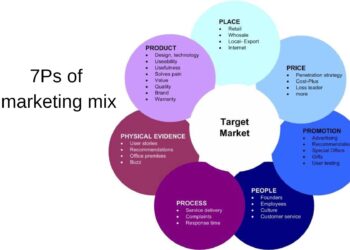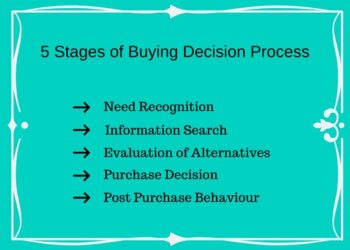An interview process is stressful for both sides, the interviewer and the candidate. An HR manager of any company carries the pressure of choosing the right candidate who can maintain his workflow even under immense stress conditions. As this dynamic process doesn’t have any fixed set of parameters for choosing the right employee, asking ‘ Stress questions’ is a great way to know your interviewee in a short span of time.
The purpose is not to insult the candidate or just put one in bad situations, these are actually misconceptions. The sole purpose of creating an uneasy situation is to see the candidate’s quick response to it and to understand the behavior and personality. Because his journey will be full of ups and downs, the interview should be a brief reflection of it.
What’s the significance of having Stressed questions in an interview?
The most common problem while hiring, as an employer, is not to find many good matches by skill but most of the time those skillful people don’t perform well under tense situations. Either they lack to make precise decisions, meet the targets or mess up while directing any crucial projects.
Therefore, among the qualified candidates, it is crucial to ask them a few breathtaking questions and put them in odd situations to ascertain their abilities. How are they answering your questions? Do they get nervous? Or easily cope with your questions. Notice them, these are the reactions that tell you whether the person is solution oriented or not. You always want to select an employee who not only possesses the required skills but also has a solution-oriented mind.
what this article tells you –
It’s a short guide for you on how you can build the stress section of your interview and why having stress interview questions is important. By means of stress, question what it actually means and how it works in favor of you. A bunch of sample questions in different sections you will get that we hope will be beneficial for you.
Define your area of questionnaires first

As everyone’s personality is different their skill of handling the same stressful situation also differs. One might be good at decision-making in a tricky circumstance but bad at convincing the opponent to crack a deal whereas the other one is good at it. As an HR manager, you want to evaluate your candidate’s best ability and their persona so diversify your stress-putting questionnaires. You can previously plan for some questions and when to land them.
Types of stress questions and their sample questions
- Direct questions
- Situational questions
- Questions based on their job role
Direct Questions
Direct questions can be defined as generalized pressure-putting questions related to self-growth, time management, and basically everything related to the person’s persona, gratitude, and work style.
Examples
- Tell us about your long-term vision.
- What are your weaknesses?
- How do you manage to give a presentation on short notice?
- What are the special skills that make you stand out from the others?
- Do you really think you are a better choice for us? If so, why?
- What is the biggest mistake in your life which you still regret and why?
- Have you faced any stressful situations in your life till now?
- Don’t you think your introverted nature ( as you mentioned yourself in the resume) will be a hindrance in building a quality team?
- Are you a late riser?
- We are not getting satisfying answers from you. Why do we feel that you are hiding something from us?
- What if your manager is criticizing you in front of your subordinates?
- What is your ‘me time’? Will you sacrifice it under an extra workload?
Situational Questions
These are one type of reaction questions sub-ordering with any baggy situation. This kind of typical question really tests your candidates’ nerves and patients.
Examples
- You have very fluctuating grades, Is it an indication of your inconsistency?
- As you mentioned you felt monotonous in your previous job, Don’t you think you get bored too early?
- How will you manage the situation if your team members are not listening to you while leading a team?
- Suppose you are facing a bad phase in your personal life. How much reflection of it will you have in your work?
- If your supervisor is making any mistake in a high-end presentation and you notice. How will you alert him?
- If you stay here for a long time, do you think any colleague could become your best friend rather than your competitor?
Questions based on job role
You might have certain special requirements for a specific job role, so you should ask your candidates for it. It is good for both ends as the candidates also get to know through your questions, what they are expected to behave like in the job position.
Examples
- As we are hiring you for the manager post in our company,
- What is the prior management experience you carry?
- How good are you at multitasking while managing many people and sometimes their requirements and tantrums?
2. If you are looking for an employee for the post of public relations you can ask them-
- Do you prefer to interact with people or want to spend time alone?
- Do you see public speaking as your strength?
Impacts of stress
In a smooth-going interview when suddenly some stressful questions land, the candidate goes through a sudden adrenaline rush. You might notice changes in voice tone, posture, facial expression, and many more. While you keep asking the candidate questions from different scenarios while answering them they might become furious, or irritated or someone who has good control over his nerve can answer the question mentation calmly and delightfully.
What can be done rather than questioning for imposing a stressful environment on your candidate?
For checking your candidate’s presence of mind and emotional intelligence it’s not always necessary to follow the one-way rule of asking questions. Stress can be created in many other ways too. One thing that can be done is to ignore the candidate by not making eye contact and careless expressions when the candidate is answering. Stop the candidate while answering every alternate question as you are not liking his answers. By creating a false myth in his mind that you are very ignorant about his performance it’s a golden time to see if he is still confidently reacting or under pressure.
How to Judge the candidate’s response
The best way is to divide your interview into 3 phases. First, you welcome your candidate, spend quality time getting a general view of him, and later drag some tough questions and finish it with a good note. The key is to spend enough time while interviewing and give your candidate enough time for answering. As you are gonna judge him from his answers. Notice if there are any changes in the behavior in different phases. One more thing while noticing the response of his phase transition should be smooth.
If your interviewee is not fumbling, showing the presence of mind in the tough questions, and showing a reflection of built-in confidence with concise answers not dragging anything. He/she could be your next employee.
Benefits of conducting stress interview
It can save you from a ‘wrong hire’. Conducting the hiring process, and interviews are real-time and energy taking. With a ‘wrong hire’ company suffers a lot. In Fact, the whole work culture and environment in the office might be affected. So if you invest some of your energy while hiring it can save you later. The direct benefits that you get from a ‘ stress interview’ is
- A good fit for the position
- You previously know your candidate’s nature towards different situations
- According to your employee’s personality, you can choose whom to give which work
[ Also check out: British man who works for 70 years without taking a single sick leave ]
Conclusion
At the end of the way, interviewers conduct ‘stress interviews’ not because they are at the higher end. But it’s because an awkward situation is the real personality test. A job position not only required technical skills but also many skills. So for a hiring manager, it’s just a part of their job. As a job seeker, you might hate that tense part of your interview but trust me you have faith in yourself and are confident enough that you can go through this easily. We hope the article is helpful on both ends. The given questions and tricks might be helpful for an interviewer to pick the best candidate.












